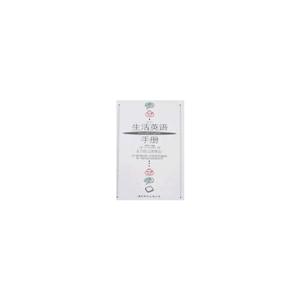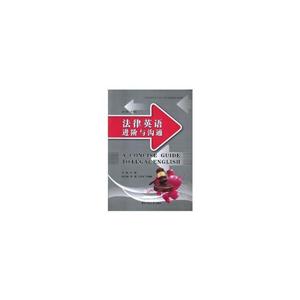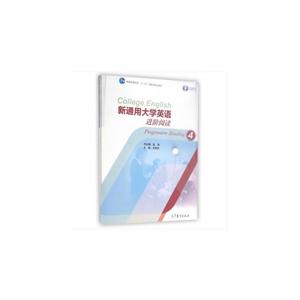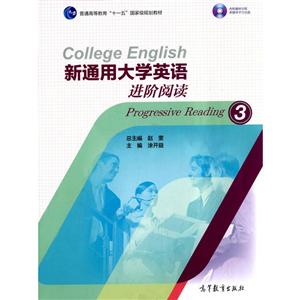
作者:杨 芳 张文霞 主编
页数:152
出版社:机械工业出版社
出版日期:2021
ISBN:9787111674405
电子书格式:pdf/epub/txt
内容简介
本书与学堂在线平台上的慕课“生活英语进阶”课程配套,精心挑选了8个研究主题,涵盖了文、史、理、工学科大类,分别是:文化研究、生命科学、艺术、人与自然、社会问题、工程技术、心理学和经济领域,对应了人文、科技、艺术、社科、工程、心理和经济等大学常见学科。本书旨在通过多学科的主题式综合讲解,教会大家学术写作常用方法和技巧。
作者简介
杨芳,清华大学外国语言文学系副教授
2012年美国贝勒大学访问学者
清华大学生活英语系列MOOC负责人
杨芳老师的生活英语系列MOOC
《生活英语听说》MOOC
《生活英语读写》MOOC
《生活英语进阶》MOOC
《通用学术英语(先修课)》MOOC
张文霞,清华大学外国语言文学系教授、博士生导师。清华大学人文学院党委副书记、外文系党总支书记、教育部高等学校大学外语教学指导委员会副主任委员、北京市大学英语研究会理事长、Assessing Writing Journal 和“中国应用语言学”等期刊编委,以及多所高校的客座教授。
自1987年工作至今,一直承担量大面广的公外本、硕、博的英语课程和英语专业硕、博研究生的课程教学。其主要研究方向为应用语言学和语言测试学,在国内外学术期刊上发表论文40余篇,出版专著2部,主编教材4部。其中包括专著《中国学生英语应试作文篇章特点及中外阅卷人员的评判研究》、教材《新时代交互英语-读写译》与《写作实践》以及论文“World Englishes: issues in and from writing assessment”等。
本书特色
– 混合式教学的设计,原汁原味的清华课堂
每个单元的课堂教学部分都在线上MOOC配有视频课程,可以扫描二维码学习,课堂活动部分在教材中。慕课中有大量英美国家助教和清华同学之间的交流和互动案例,再现原汁原味的清华课堂。
– 聚焦英语研究课题的研讨与写作
本书包含8个研究主题,涉及文、史、理、工学科大类。旨在通过多学科的主题式综合讲解,教会学术写作的常用方法和技巧。
– 多个国际平台共享课程
本书出版之际,“生活英语进阶”在国内慕课平台“学堂在线”的选课人数已突破24万,在美国edX平台上的选课人数超过2万,在Coursera平台上的选课人数超过1.3万,选课学生分别来自212个国家和地区。
– 全彩印刷,图文并茂
全书四色印刷,配有大量精美图片和丰富的视频资源。
目录
Starting Up: Cultural Differences
Listening: Pop Culture in the Arab World and the Chinese Zodiac
Group Discussion: Intelligence and Intelligence Test
Text: Intelligence Across Cultures
Academic Writing: Features of Academic English
Skills Power Station: How to Make Predictions and Contribute to a Seminar
Student Research Project: Getting Along Verbally and Non-verbally
Unit Summary
Unit 2 Life Science
Starting Up: Healthy Life
Listening: Brain Development
Group Discussion: Adolescence and Adulthood
Text: Can Musical Experiences Enhance Intelligence?
Academic Writing: How to Avoid Plagiarism
Skills Power Station: How to Identify the Lecture Structure and Participate in a Seminar
Student Research Project: Meet the World’s
First Baby Born from the DNA of Three Parents
Unit Summary
Unit 3 Art
Starting Up: Photography and Art
Listening: TV Series Adapted from Fiction
Group Discussion: Novels and Film Adaptations
Text: Art and Artists
Academic Writing: Topic Sentence and Supporting Evidence
Skills Power Station: How to Listen for Key Words and Chair a Discussion
Student Research Project: Read It or See It
Unit Summary
Unit 4 Man and Nature
Starting Up: Planet Earth
Listening: Song of the Phoenix
Group Discussion: World Heritage Sites in China
Text: Are We Alone in the Universe?
Academic Writing: How to Achieve Consistency in English Writing
Skills Power Station: How to Recognize Signpost Language in Lectures
Student Research Project: Air Pollution
Unit Summary
Unit 5 Social Issues
Starting Up: Volunteering in Rural Areas
Listening: The Unknown Number “X”
Group Discussion: The Origin and Evolution of Languages
Text: Poverty: Theories, Homelessness, and the American Dream
Academic Writing: How to Analyze Essay Structure
Skills Power Station: How to Write Introductions and Conclusions
Student Research Project: Should Animals
Be Used for Scientific and Commercial Testing?
Unit Summary
Unit 6 Engineering and Technology
Starting Up: Internet Security
Listening: 3D Printing
Group Discussion: The Development and Application of 3D Printing Technology
Text: Metal-Free Energy Storage
Academic Writing: How to Identify SPSE Structure
Skills Power Station: How to Handle Q & A Sessions
Student Research Project: Wireless
Charging
Unit Summary
Unit 7 Psychology
Starting Up: Psychology
Listening: Children’s Education Issues in the Future
Group Discussion: The Secret of Entrepreneurs’ Business Successes
Text: Dreams
Academic Writing: How to Make a Poster to Present a Paper
Skills Power Station: How to Create a Poster Presentation (1)
Student Research Project: Dreams
Unit Summary
Unit 8 Economics
Starting Up: Consumption
Listening: Collaborative Consumption
Group Discussion: The Internet and Economic Growth
Text: The Startup World
Academic Writing: How to Incorporate References and Citations
Skills Power Station: How to Create a Poster Presentation (2)
Student Research Project: The Real Estate Market
and Rising Housing Prices
Unit Summary
Glossary















